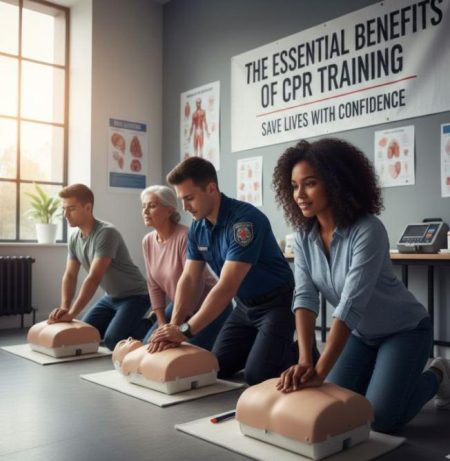Most people are aware that smoking, eating fast food, and drinking alcohol in excess are bad for their health.
But not everyone is aware that there are other elements that are less well-known, but which in some cases can be just as damaging. You’ll feel the effects of smoking within a month or two, when your breathing becomes more difficult. Other things don’t give the same warning. Their impact is slower.
The best way to prevent the negative side effects of these health threats is to simply be aware of them. As always, prevention and early treatment are the best ways to manage health matters that could cause problems if left untreated.
In this post, we’ll take a closer look at some of the hidden health threats that everyone should be aware of — and run through what you can do to combat these threats.
Sitting Too Long
Humans were not designed to sit down all day. Yet, in today’s world, that’s what many of us end up doing. In many cases, a person can drive to work, spend all day sitting down at their desk, drive home, and then spend their evening on the couch.
The risks of spending too much time sitting down are so pronounced that many researchers say that sitting down is ‘the new smoking.’ Studies have found that spending too much time sitting increases the risk of high blood pressure, high cholesterol levels, heart disease, and cancer, as well as many other health conditions.
You can combat these threats by finding ways to build more movement into your daily life. For example, by cycling to work, getting a sit/stand desk, and choosing to go for a long walk after work.
Excessive Screen Time
Screens have never been as dominant in our lives as they are right now. In all likelihood, you’ll spend your days switching between your smartphone, computer/laptop, and television. The increasing amount of time we spend looking at screens has an obvious impact on how much time we spend moving (you’re more likely to be lying down while staring at your phone), and can also have other health implications, such as eye strain, reduced sleep quality, and an increased risk of anxiety and depression.
It’s unlikely that you can give up your devices entirely, but you can find ways to reduce your screen time. Switch to using your devices consciously rather than passively (as in, when there’s a genuine need), and you’ll find that you’re on your smartphone or computer much less.
Household Air Pollution
You’ll often hear of the dangerous levels of air pollution that are present in major cities. Yet it’s not just when you step outside that you should be aware of the air you’re breathing. It’s also possible that the air inside your air is unhealthy. While your home’s air is unlikely to match the most polluted cities on the planet for unhealthiness, it can pose mild and serious health concerns, especially among people who already have respiratory issues. Poor air in the home can cause lung irritation, impact the immune system, and lead to conditions such as heart disease and COPD.
Some effective ways to improve air quality in your home include opening your windows to allow fresh air in, using cleaning products that contain natural ingredients, and managing humidity levels.
Occupational Health Conditions
Work-related health incidents have been on the decline during the past few decades, but they remain a serious threat. Each year, 2.6 million Americans are injured at work, and more than 5,000 are killed. Even Americans who are no longer employed in dangerous work environments can experience health issues, such as those who were exposed to asbestos or lead, or who had physically demanding jobs.
Symptoms related to some work-related health conditions can take years to present themselves. If you’ve been exposed to asbestos in the past, then it’s best to consult with a health professional as soon as possible and search for a mesothelioma attorney near me to fight for compensation if necessary. If you currently work in dangerous environments, such as around lead or crystalline silica dust, then ensuring your employer takes the risk seriously and provides PPE and safety training is vital for keeping yourself safe.
Even seemingly safe workplaces can be damaging to your health. If you work at a computer, then it’s recommended to ensure your posture is correct and that you take regular breaks to stand up and walk around.
Noise Pollution
The world is getting louder — and it’s impacting people’s health. In many cases, people cause noise pollution against themselves by listening to music through their headphones at dangerously loud levels. Studies have shown that being exposed to excessively loud noises at work, in public, or at home can greatly increase the risk of tinnitus and hearing loss. In addition, there’s also evidence to suggest it can increase the risk of stroke, heart disease, and high blood pressure.
There are many ways to combat the threat of noise exposure. You can go a long way towards protecting your ears and health by keeping the volume turned down when listening to music or watching TV shows. Going to a concert, or another loud environment? By hearing protection — the latest models protect your hearing without losing any clarity, so you’ll be able to hear the songs just fine.
Social Isolation and Loneliness
There are times when we want to simply be by ourselves, away from the wider world. However, it’s also important to recognize that humans are inherently social creatures. While it might be surprising, spending too much time — or all of their time — by themselves can increase a person’s risk for a wide range of health conditions, including depression, type 2 diabetes, heart diseases, and even death. Just as regular checkups or Women’s Intimate Health Treatments are essential for overall well-being, maintaining social connections is equally important. If you have a friend or family member who’s becoming increasingly isolated, then reach out. Even a simple phone call or coffee catch-up can go a long way towards keeping the impacts of isolation at bay at bay. It’s especially important to do this for older people — even social older people are at risk of becoming isolated if they have mobility issues.






